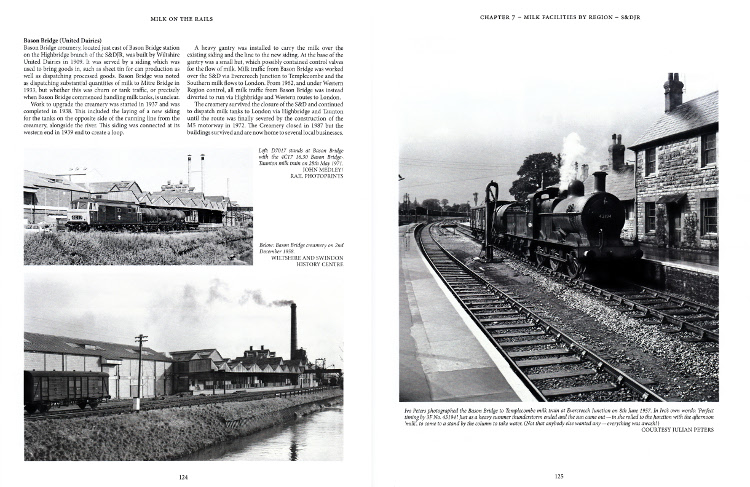Wild Swan Books
Milk on the Rails
Matthew Pinto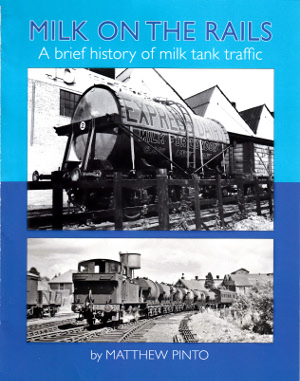
Softback - 192 pages - £28.95
Contents- Historical overview
- Milk Trade Organisation
- The Early Years
- The Dairy Companies
- The Milk Marketing Board
- Milk Marque and Beyond
- Development & Later Changes
- New Facilities
- Milk Tank Handling
- Creameries
- Later Developments
- Post-War Changes
- The Western Agreement
- The End of Milk Traffic
- Milkliner
- Railway Milk Tank Development
- 4-Wheeled Tanks
- 6-Wheeled Tanks
- Road Rail Tanks (Rotanks)
- MMB Refurbished Tanks
- Milk Tank Liveries
- Pre-nationalisation
- Post-nationalisation
- Milk Train Routes
- Great Western Railway
- Southern Railway
- London Midland & Scottish Railway
- London & North Eastern Railway
- Traffic in London
- The 1940s
- Inter-dairy traffic
- Consolidation of Dairies
- Milk Trains
- Motive Power
- Milk Train Formations
- Brake Vehicles
- Milk Facilities by Region
- Great Western Railway
- Somerset & Dorset Joint Railway
- Southern Railway
- London Midland & Scottish Railway
- London & North Eastern Railway
The result of a sustained interest and extensive research by author Matt Pinto, this is the first book to be published that tells the story and describes the fascinating details of the milk traffic that was such an important part of the railway scene for so many years. In 'Milk On The Rails' author Matt Pinto gives us the complete story of how milk was transported on British Railways in the era of bulk transportation. Starting with the origins of the traffic and how it built up before the Second World War, he then covers development between the Wars and details of the rail vehicles, dairies and other facilities used, together with the routes and services that carried milk tanks.
The companies who carried out all this work are also described, as is the development of the Milk Marketing Board, together with later developments and how they led to the end of the traffic. This includes late initiatives such as the refurbishment of rail milk tanks by the MMB and the sadly unsuccessful 'Milkliner' project in the era of privatisation.
For the modeller, the book contains a wealth of photographic material, much of which has not been seen in print before, including detailed photographs of the many different types and styles of milk tank that were used, together with many operational details covering motive power, rolling stock and the varied rail served terminals and facilities built for the traffic.
The book reveals a complex and well organised operation, with extensive facilities at both 'ends' of the operation. For example Whitland, often mentioned but rarely described, and the same company's extensive Wood Lane distribution and bottling plant in West London are both revealed in fascinating detail, including wonderful aerial views of both sites.
Social history is also included with two charming recollections of working in the industry, photographs of staff at work, some alarming incidents and some great anecdotes. The book covers the whole of Britain and all eras from earlier steam operations up until the later diesel operations and is extensively illustrated with numerous photographs.
Example Two Page Spread [1]
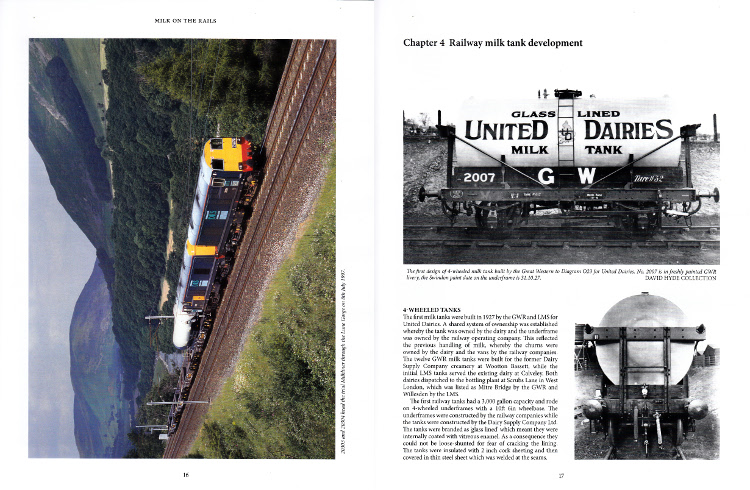
Example Two Page Spread [2]
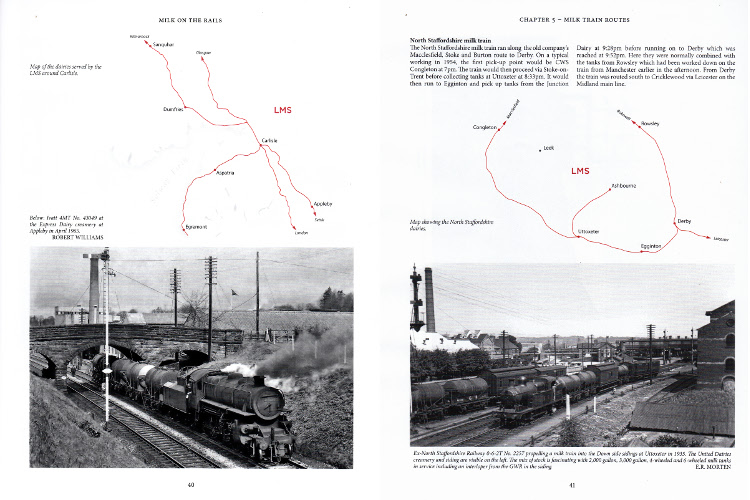
Example Two Page Spread [3]
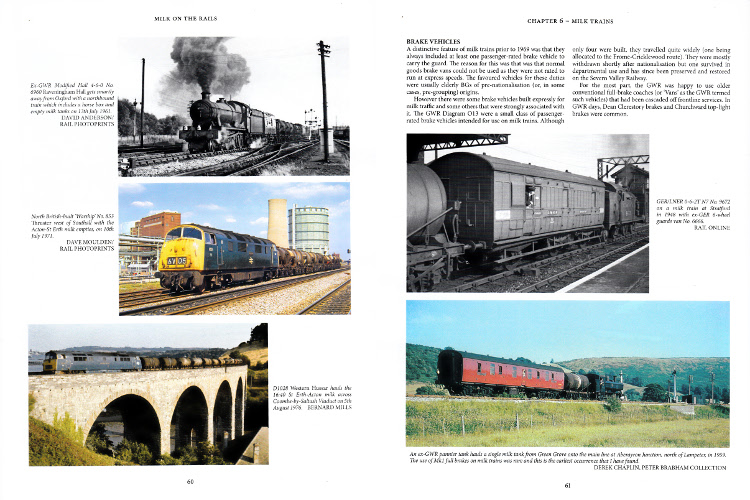
Example Two Page Spread [4]
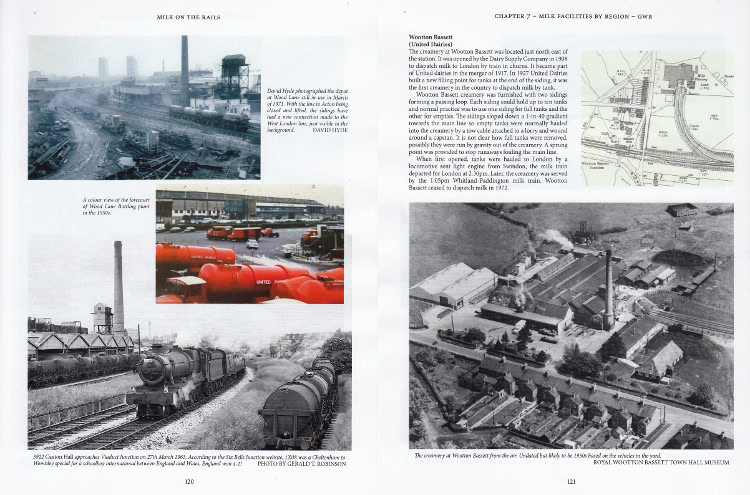
Example Two Page Spread [5]
